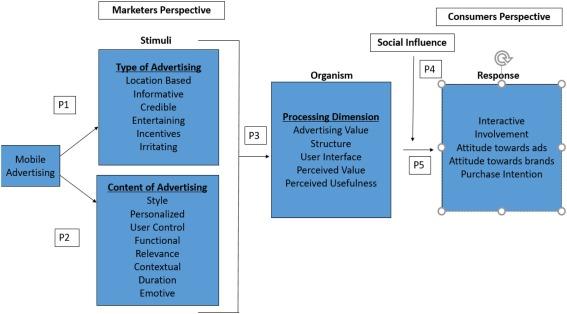Learning Analytics Specialist: Role, Skills, and career Path Insights
Are you passionate about education technology and data-driven solutions? the role of a Learning Analytics Specialist is emerging as a key driver in transforming how universities, colleges, and schools understand student learning. If you’re considering a career as a Learning Analytics Specialist in higher education or K-12 environments, this extensive guide will walk you through the job’s essential role, required skills, potential career paths, and actionable tips for landing your dream EdTech position.
What is a Learning Analytics Specialist?
A Learning Analytics Specialist is an education technology professional responsible for collecting, analyzing, and interpreting data related to student learning and performance. The ultimate goal is to improve educational outcomes by supporting evidence-based decision-making for faculty, administrators, and instructional designers. By leveraging learning management systems,data visualization tools,and advanced analytics,these specialists help institutions create more personalized,efficient,and effective learning experiences.
Key Responsibilities of a Learning Analytics Specialist
- Data Collection and Management: Aggregating and organizing data from various sources such as LMS platforms,assessment tools,and digital resources.
- Data Analysis: Applying statistical methods and analytical approaches to identify trends, patterns, and areas for betterment in student learning and engagement.
- Visualization and Reporting: Constructing clear, actionable dashboards and reports for stakeholders—including faculty, administration, and institutional researchers.
- Collaboration: Working closely with faculty,instructional designers,IT staff,and other EdTech professionals to interpret data findings and implement improvements.
- Advisory Role: Offering guidance on best practices for data-driven decision-making and effective use of EdTech solutions.
- Ethical Data Practices: Ensuring privacy, compliance, and security of student data while maintaining transparency and ethical standards.
Essential Skills for Learning Analytics Specialists
To thrive as a Learning Analytics Specialist in a school, collage, or university setting, you’ll need a blend of technical, analytical, and interpersonal skills. Employers typically look for candidates who possess:
- Data Analytics and Statistical Skills: Proficiency in data analysis software like R,Python,SPSS,or advanced Excel.
- Understanding of Learning Management Systems (LMS): experience with platforms like Canvas, Blackboard, Moodle, or Google Classroom.
- Data Visualization: Hands-on expertise with tools such as Tableau, Power BI, or Google Data Studio to present insights effectively.
- problem Solving and Critical Thinking: The ability to frame research questions, identify gaps, and propose actionable solutions.
- Knowledge of Education theory: Familiarity with pedagogical concepts, assessment types, and instructional design is highly valued.
- Interaction and Presentation: Capable of explaining complex data insights to non-technical stakeholders in a clear, compelling manner.
- project Management: Managing multiple projects, setting timelines, and delivering results in dynamic educational settings.
- Ethical Awareness: Understanding of FERPA, GDPR, and other relevant privacy regulations in education technology.
Educational Background and Certifications
Most Learning Analytics Specialists have at least a bachelor’s degree in data science,education technology,information systems,statistics,or related fields. Many employers—especially in higher education—prefer candidates with a master’s degree in learning analytics, educational research, or instructional technology.
Relevant certifications to strengthen your resume include:
-
Learning Analytics Certificate Programs (offered by various universities)
-
Data Science or Analytics certifications (Google Data Analytics, Tableau, SAS, etc.)
-
Educational Technology Specialist Certification
-
Project Management Professional (PMP) for those seeking leadership roles
Career Path and Advancement opportunities
The career path of a Learning Analytics Specialist is both diverse and promising, with growing demand across the entire education sector. Starting in an entry-level analytics role, you can advance by taking on more complex projects, specializing in particular analytics domains, or moving into leadership.
- Entry-Level: Data analyst, education technology assistant, LMS support.
- Mid-Level: Senior learning analytics specialist,instructional data consultant,educational data scientist.
- Leadership: Director of Learning Analytics, Chief Data Officer (Education), Head of Institutional Research.
- Specializations: Predictive analytics, adaptive learning technologies, student retention analytics, personalized learning systems.
Universities, colleges, and K-12 schools increasingly recognize the value of data-informed educational strategies, making learning analytics a field with ample opportunity for career growth and diversification.
Benefits of Working as a Learning Analytics Specialist
- Impactful Work: Directly contribute to student success, equity, and institutional improvement.
- cutting-Edge Environment: Work at the intersection of technology,education,and innovation.
- Professional Growth: Access to continuous training, conferences, and opportunities to lead transformative projects.
- Job security: Growing emphasis on data-driven education ensures steady demand for analytics professionals.
- Collaborative Culture: Work with a diverse team of educators, technologists, and administrators.
Practical Tips for Job Seekers in Learning Analytics
- Stay updated: Follow leading EdTech news sources, join professional associations, and attend relevant workshops or webinars.
- Build a Portfolio: Create sample dashboards, data analysis case studies, or write blogs to showcase your expertise.
- Network: Connect with education technologists, attend campus career fairs, and cultivate relationships with academic leaders.
- Tailor Your Resume: Highlight relevant analytics projects, certifications, and any experience with LMS or education data.
- prepare for Interviews: Have examples ready where you used data analytics to suggest improvements or positively influenced educational outcomes.
- Demonstrate Soft Skills: Emphasize your ability to communicate complex findings to diverse audiences and your sensitivity to student privacy concerns.
Conclusion
The role of a Learning Analytics Specialist is rapidly becoming a cornerstone of success for educational institutions at every level. If you’re analytical, collaborative, and passionate about using data to shape the future of education, this position could be your ideal fit.By honing your technical and interpersonal skills, keeping up with EdTech trends, and strategically positioning yourself for advancement, you can illuminate pathways to better learning and career fulfillment. Now is the perfect time to step into this innovative role and make a lasting difference in the academic world.

